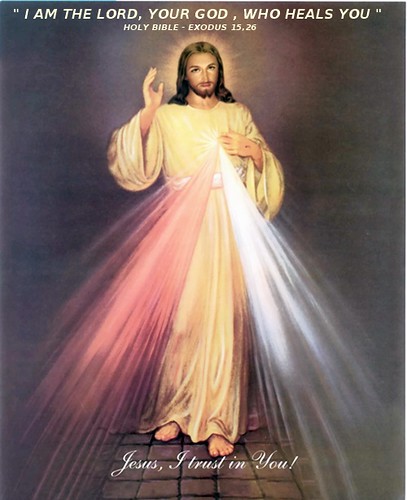A brief exploration of Jeremiah 32, examining the trust amidst turmoil and Gods promise of restoration fulfilled in Jesus.
cover image
The historical and cultural context of Jeremiah 32 is steeped in turmoil as Jerusalem faced the imminent threat of being overrun by the Babylonians. The city was under siege, and Jeremiah, the prophet, found himself imprisoned for prophesying the fall of the city to Babylon, a consequence of his unwavering commitment to speaking the truth. The turmoil of this period was palpable, with the impending doom looming over the inhabitants of Jerusalem. It’s within this tumultuous backdrop that the narrative of Jeremiah 32 unfolds, showcasing the enduring faith and trust amidst chaos.
Jeremiah’s act of purchasing a field in the midst of such chaos becomes a profound beacon of hope and a tangible manifestation of his unwavering faith in God’s promise of restoration. The purchase of the field, despite the city already being under Babylonian control, stands as a powerful symbol of hope and trust. It exemplifies the prophet’s unyielding belief in God’s pledge to renew and restore amidst the prevailing turbulent circumstances. In the face of impending calamity, Jeremiah’s actions communicate a powerful message of resilience, trust, and hope. This act of purchasing a field becomes a poignant reminder that even in the darkest of times, God’s promise of restoration remains unwavering for those who put their trust in Him [2, 3].
Moreover, the significance of Jeremiah’s act of purchasing a field becomes evident in his deeply rooted trust in God’s promise of restoration amidst chaos. This act serves as a beacon of hope and a tangible manifestation of his faith in God’s faithfulness, even in the midst of overwhelming circumstances. It serves as a powerful symbol of hope and faith in the midst of overwhelming turmoil, illustrating Jeremiah’s unwavering conviction that God’s promise of restoration would indeed come to pass, despite the current circumstances [2, 3].
Furthermore, Jeremiah’s decision to buy the field was a bold statement that he believed in the future flourishing of the land, despite the current desolation and destruction. His action spoke volumes about his unwavering faith in God’s ultimate plan of redemption for His people. Jeremiah’s act of purchasing the field was not just a spontaneous or impulsive decision; it was a deliberate and intentional expression of hope in the midst of adversity. It was a visible reminder to the people of Judah that despite the imminent judgment and devastation, there was still a future of restoration awaiting them. This powerful symbol of faith amidst chaos continues to inspire and encourage people facing their own tumultuous circumstances today. It serves as a timeless example of how, even in the darkest of times, unwavering trust in God’s promises can lead to actions that embody hope and faith. Jeremiah’s act of purchasing the field challenges us to consider how we can similarly demonstrate our trust in God’s promises, even when our surroundings seem bleak and hopeless. His story prompts us to seek tangible ways to display our faith and hope in the assurance of God’s ultimate restoration and redemption, just as Jeremiah did amidst the turmoil of his time. [2]
Turmoil in Jeremiah’s Time
The historical and cultural context during Jeremiah’s time was marked by the devastating impact of the Babylonian siege on Jerusalem. The city was under siege by the Babylonians, and Jeremiah found himself imprisoned during this period of intense turmoil and uncertainty. This tumultuous period was a result of Jeremiah’s prophetic stance on the city’s fate, which led to his imprisonment for boldly proclaiming the impending fall of Jerusalem to Babylon.
In the face of such daunting circumstances, Jeremiah’s response was an incredible demonstration of faith and hope. Instead of succumbing to despair, he chose to act in faith by purchasing a field in Anathoth from his cousin Hanamel, despite the city being under Babylonian control. This act of acquiring land in a time of crisis was a tangible manifestation of Jeremiah’s unyielding trust in God’s promise of restoration amidst the prevailing chaos. It served as a powerful symbol of hope and faith in the midst of overwhelming turmoil, illustrating Jeremiah’s unwavering conviction that God’s promise of restoration would indeed come to pass, despite the current circumstances [2, 3].
This remarkable response to the turmoil of his time provides us with an inspiring example of how to maintain faith and hope even in the midst of seemingly insurmountable challenges. Jeremiah’s actions teach us that, even in the face of great adversity, our faith in God’s promises can serve as an anchor, enabling us to stand firm and unwavering in our trust in Him.
Furthermore, Jeremiah’s act of purchasing a field amidst the turmoil of the Babylonian siege serves as a profound example of unwavering faith and obedience in the face of seemingly insurmountable challenges. This act of purchasing the field was a tangible manifestation of Jeremiah’s trust in God’s promise of restoration, despite the chaos and impending doom. In the same way, we can apply the lessons from Jeremiah 32 to our personal lives by trusting in God’s promises even when circumstances seem dire. When we encounter challenges that seem hopeless, we can draw inspiration from Jeremiah’s unwavering faith and commitment to God’s instructions.
Trust Amidst Turmoil
During Jeremiah’s time, the turmoil was palpable as Jerusalem was under siege by the Babylonians, and Jeremiah himself was imprisoned for prophesying the city’s fall to Babylon. In the midst of this chaos, Jeremiah’s response was remarkable. Instead of succumbing to despair, he chose to act in faith by purchasing a field. This act wasn’t merely a real estate transaction; it was a profound demonstration of trust in God’s promise of restoration. Jeremiah’s decision to buy the field was a bold statement that he believed in the future flourishing of the land, despite the current desolation and destruction. His action spoke volumes about his unwavering faith in God’s ultimate plan of redemption for His people.
Jeremiah’s act of purchasing the field was not just a spontaneous or impulsive decision; it was a deliberate and intentional expression of hope in the midst of adversity. It was a visible reminder to the people of Judah that despite the imminent judgment and devastation, there was still a future of restoration awaiting them. This powerful symbol of faith amidst chaos continues to inspire and encourage people facing their own tumultuous circumstances today. It serves as a timeless example of how, even in the darkest of times, unwavering trust in God’s promises can lead to actions that embody hope and faith. Jeremiah’s act of purchasing the field challenges us to consider how we can similarly demonstrate our trust in God’s promises, even when our surroundings seem bleak and hopeless.
God’s Promise of Restoration
Jeremiah 32 not only portrays the turmoil and uncertainty faced during the Babylonian siege but also highlights the unwavering faith of Jeremiah in God’s enduring promises. The significance of Jeremiah’s act of purchasing a field becomes evident in his deeply rooted trust in God’s promise of restoration amidst chaos. This act serves as a beacon of hope and a tangible manifestation of his faith in God’s faithfulness, even in the midst of overwhelming circumstances.
Furthermore, Jeremiah’s prayer during this period of upheaval showcases his willingness to express his confusion before God while acknowledging the sovereignty of the Almighty. It’s a powerful reminder that even in our moments of doubt and perplexity, we can bring our concerns before God, knowing that He listens and responds. God’s response to Jeremiah’s prayer is one of reassurance, promising not only a future restoration of the land but also the establishment of a new covenant with His people. This reaffirmation by God serves as a profound testament to His faithfulness, demonstrating that even in the face of judgment, there is always the promise of restoration for those who trust in Him.
Moreover, the significance of the new covenant promised by Yahweh in Jeremiah 31:31-37 holds immense significance in the context of God’s promise of restoration fulfilled in Jesus. This covenant represents a distinctive shift from the old covenant established at Sinai, signifying a transformation in the relationship between God and His people. Unlike the old covenant, which was written on tablets of stone, the new covenant emphasizes the profound impact of the law being inscribed on the hearts.
Connection to Fulfillment in Jesus
The new covenant promised by Yahweh in Jeremiah 31:31-37 is a pivotal aspect of God’s promise of restoration and is distinct from the old covenant at Sinai. This new covenant is characterized by the law being written on the hearts of the people and the forgiveness of sins, signifying a more intimate and personal relationship with God.
The fulfillment of this promise is found in the New Testament through Jesus Christ. In the book of Hebrews, Jesus is depicted as the mediator of a new and superior covenant with better promises. This signifies that the covenant established by Jesus fulfills and surpasses the promises made in the old covenant, bringing about not only forgiveness of sins but also a transformation of the inner being through the indwelling of the Holy Spirit. This profound fulfillment emphasizes the continuity of God’s redemptive plan from the Old Testament to the New Testament, as Jesus becomes the embodiment of God’s promise of restoration and renewal for His people.
#Jeremiah32, #Trust, #PromiseofRestoration, #FaithAmidstTurmoil, #JesusChrist, #Obedience, #Hope, #BiblicalNarrative, #GodsFaithfulness, #Christianity, #OldTestament, #Messiah, #Endurance, #DivinePromise, #SpiritualTrust, #OvercomingAdversity, #Patience, #Assurance, #Redemption, #Resilience
Moreover, the new covenant promised by Yahweh in Jeremiah 31:31-37 holds immense significance in the context of God’s promise of restoration fulfilled in Jesus. This covenant represents a distinctive shift from the old covenant established at Sinai, signifying a transformation in the relationship between God and His people. Unlike the old covenant, which was written on tablets of stone, the new covenant emphasizes the profound impact of the law being inscribed on the hearts of the people.
Key Themes in Jeremiah 32
One of the key themes in Jeremiah 32 is the unwavering faith and trust in God, which is exemplified by Jeremiah’s act of purchasing a field amidst the chaos of the Babylonian siege. This act serves as a beacon of hope and a tangible manifestation of his belief in God’s promise of restoration. It reflects the idea that even in the midst of turmoil, trusting in God’s promises can bring about a sense of hope and assurance.
Another prominent theme in Jeremiah 32 is that of prophecy and fulfillment. Jeremiah’s obedience to God’s command to purchase the field becomes a prophetic act that foreshadows the fulfillment of God’s promise of restoration. This highlights the significance of aligning one’s actions with God’s word, even when circumstances seem dire. It is a reminder that God’s promises are certain, and He works through prophetic actions to bring about His redemptive plans.
Moreover, the chapter emphasizes the themes of God’s sovereignty, redemption, and restoration. Jeremiah’s prayer and God’s reaffirmation of His promise of restoration underscore the sovereignty of God over all circumstances, including the turmoil of the Babylonian siege. It reminds us that God is in control, and His plans for redemption and restoration will ultimately come to pass, despite the challenges and chaos of the world. This theme echoes throughout the chapter, serving as a powerful reminder of God’s faithfulness and the hope of restoration that He brings.
Practical Application of Faith and Obedience
Jeremiah’s act of purchasing a field amidst the turmoil of the Babylonian siege serves as a profound example of unwavering faith and obedience in the face of seemingly insurmountable challenges. This act of purchasing the field was a tangible manifestation of Jeremiah’s trust in God’s promise of restoration, despite the chaos and impending doom. In the same way, we can apply the lessons from Jeremiah 32 to our personal lives by trusting in God’s promises even when circumstances seem dire. When we encounter challenges that seem hopeless, we can draw inspiration from Jeremiah’s unwavering faith and commitment to God’s instructions.
Moreover, the historical and cultural context of turmoil during Jeremiah’s time provides a relatable backdrop for our own societal challenges. By learning from Jeremiah’s example, we can uphold our faith and hope amidst societal turmoil, just as he did during the siege of Jerusalem. This ancient example of faith and obedience becomes a timeless source of encouragement for believers facing adversity, reminding us that God’s promises endure even in the midst of chaos and uncertainty. Through Jeremiah’s unwavering trust, we are encouraged to remain faithful to God’s promises, even when the world around us seems to be in turmoil.
Significance of the New Covenant
The new covenant promised by Yahweh in Jeremiah 31:31-37 holds immense significance in the context of God’s promise of restoration fulfilled in Jesus. This covenant represents a distinctive shift from the old covenant established at Sinai, signifying a transformation in the relationship between God and His people. Unlike the old covenant, which was written on tablets of stone, the new covenant emphasizes the profound impact of the law being inscribed on the hearts of the people.
This shift to an internalized law signifies a deeply personal and transformative relationship with God. It speaks to the intimate nature of the new covenant, where the principles of God are not merely external regulations but are internalized and become an integral part of the believer’s identity. This transformation is a testament to God’s desire for an authentic and heartfelt connection with His people, ushering in a new era of spiritual communion and closeness.
Furthermore, the promise of forgiveness of sins within the new covenant underscores God’s boundless grace and mercy. Through the forgiveness of sins, God demonstrates His unwavering love and compassion, offering a pathway for reconciliation and restoration. This aspect of the new covenant foreshadows the ultimate fulfillment in Jesus Christ, who mediates a new and superior covenant with better promises. The forgiveness of sins through the atoning sacrifice of Jesus embodies the pinnacle of God’s redemptive plan, fulfilling the promise of restoration and salvation encapsulated in the new covenant.
Lessons for Personal Faith and Obedience
Jeremiah’s unwavering faith and obedience in purchasing the field, even in the midst of turmoil and impending doom, serve as a powerful example for believers today. His actions demonstrate the importance of trusting in God’s promises, even when circumstances seem hopeless. This highlights the significance of holding on to faith in the face of adversity, a timeless lesson that can be applied to various personal challenges individuals may encounter.
Moreover, Jeremiah’s commitment to obeying God’s command to purchase the field, despite the chaos and confusion he expressed in prayer, speaks to the value of obedience and surrender to God’s will. This serves as a reminder that obedience to God’s instructions, even when they seem illogical or challenging, is crucial in our journey of faith. It underscores the need to trust in God’s wisdom and sovereignty, mirroring Jeremiah’s willingness to act in obedience to God’s will. As believers navigate their own trials and tribulations, Jeremiah’s example provides a source of encouragement to remain steadfast in faith and obedient to God’s leading, knowing that He is faithful to fulfill His promises and bring about restoration in His perfect timing.
Relevance and Conclusion
Jeremiah 32 holds significant relevance in understanding God’s promise of restoration in Christ, offering profound insights into unwavering trust amidst turmoil and the fulfillment of God’s promises. The historical and cultural context during Jeremiah’s time, with Jerusalem under siege by the Babylonians and Jeremiah’s imprisonment during the siege, provides a backdrop for the remarkable act of purchasing a field as an expression of trust in God’s promise of restoration amidst chaos [2, 3]. This demonstrates the unwavering faith and hope that believers can hold onto even during the most tumultuous times, emphasizing that God’s promises remain true and reliable regardless of the surrounding circumstances.
The act of purchasing a field by Jeremiah becomes a beacon of hope and a tangible manifestation of his faith in God’s promise of restoration amidst the impending doom of Jerusalem. This act not only serves as an example of resolute trust in God but also conveys the message that God’s restoration is inevitable, even in the face of seemingly insurmountable turmoil. It encourages believers to hold fast to their faith in God’s promises, knowing that just as Jeremiah’s purchase of the field symbolized the future restoration of the land, God’s promises of restoration and renewal in Christ will be fulfilled. Therefore, Jeremiah 32 serves as a testament to the unwavering trust and hope that believers can maintain even in the most distressing situations, assuring them of the ultimate fulfillment of God’s promises in due time [2, 3].
In conclusion, Jeremiah 32 stands as a powerful testament to the unwavering trust and hope that believers can maintain even in the most distressing situations, assuring them of the ultimate fulfillment of God’s promises in due time



